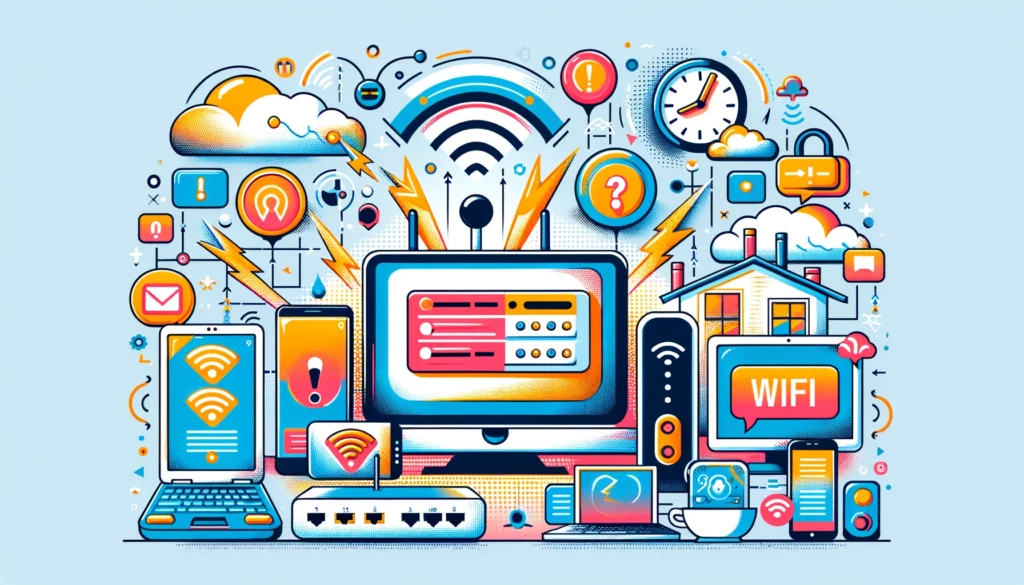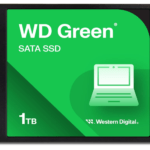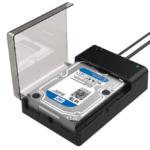Slow Internet is a pain—worse, it costs you productivity. If it takes your slow Internet an extra second to load each webpage and you load 120 webpages a day, slow Internet costs you over 12 hours a year. That’s a whole lot of time you could put to more productive or more entertaining use.
The causes of slow Internet vary. Sometimes the simplest solution is just to upgrade your Internet service. But sometimes your slow service is related to an equipment problem or a software screw up. Let’s look at five of the usual suspects:
1—Is Your Computer Sick?
Viruses are a huge problem. We know millions of PCs are infected with viruses because these virus-infected computers form massive botnets which send most of the world’s spam, power most of the world’s major denial-of-service attacks, and host most of the world’s phising websites.
If your computer is infected by a virus, that virus is probably on the Internet right now doing something illegal and immoral—and it’s doing it using your limited Internet bandwidth.
To discover whether you have a virus installed on your computer, install anti-virus software (if you don’t already have it) and run a full system scan. It will take a while. If it finds a virus, follow its instructions. If it doesn’t find a virus, then your slow Internet is probably caused by something else.
2—Your Computer’s Slight Of Hand
One of the most wonderful things about computers is that they can perform many tasks without supervision. But it can also be the case that your computer will keep doing something you don’t want indefinitely unless you tell it to stop.
For example: downloading and uploading files. Many programs today automatically configure themselves to download software updates. (Some even automatically install the updates.) But each time one of these programs downloads an update, it slows down your Internet speed.
Worse, more and more legitimate programs—such as World of Warcraft—are also using your computer to share program updates with other computers. Whenever a software update is available, World of Warcraft downloads it to your computer and then lets other computers download it from you.
Most home and small business Internet connections are asymmetrical—that means you have much less upload capacity than download capacity, so when programs use your computer to upload files, your Internet connection slows down much faster.
Another set of programs to watch out for is Peer-to-Peer (P2P) file sharing programs such as LimeWire and BitTorrent. If these programs are set to start at boot, they can spend all day uploading files to other people, reducing your Internet speed to a crawl.
3—The Wait Before The Wait
If you pay very close attention to your Web browser, you’ll discover webpages download in two discrete steps:
- “Looking up example.com”
- “Connecting to example.com” and “downloading from example.com”
The first step gets hardly an attention from Internet Service Providers (ISPs) and their customers. Instead everyone wants to know how fast step two is.
But step two can’t happen until step one finishes. On a super-fast Internet connection, you might be able to download a webpage in just 1 millisecond—but it’s useless if you spend 50 milliseconds looking up the webserver.
What your Web browser means when it says “looking up example.com” is that it’s trying to turn example.com into a Internet Protocol (IP) address such as 192.0.43.19 using the Domain Name System (DNS) so your Web browser can connect to that address. It’s sort of like you looking up a name in a directory so you can call the person by phone.
Since very few customers care about DNS speed, very few ISPs work hard at making it fast. But you’re not stuck with your ISP’s DNS servers—you can use a free third-party DNS server optimized for speed such as OpenDNS.com.
5—Losing An Old Friend
It could be your Internet really isn’t slow—it just seems that way. This is often the case when you primarily view the Internet through your Web browser.
After your Web browser downloads a webpage, it tries to render it. That is, it looks at the HTML code and CSS style sheet and the images on the page and tries to put them all together in the right order.
This is an amazingly difficult process, and the fact that computers were able to do it 17 years ago in the Netscape Navigator days blows me away. But webpages today are getting more complicated and that means older computers are having trouble doing all of the necessary work within a reasonable amount of time.
If your computer is more than a few years old, it could be that your slow Internet is really just a slow computer. To see whether that’s the case, try loading the same page over the same Internet connection on a faster computer. If it loads faster, then a new computer is the only answer to your slow Internet.




Cool blog! Is your theme custom made or did you download it from somewhere?
A theme like yours with a few simple adjustements would really
make my blog jump out. Please let me know where you got your design.
Thanks a lot
It is thesis but I customized it. 🙂
The wait before the wait used to be a major problem for me but that is now all in the past.
Sharing is Slowing is also very true. I experienced this with my previous ISP.
Thanks David for this post.
Advice to take into consideration. The problem I have noticed with CCLEANER when I want to clean and make an analysis, there are sites that I do not know that I’m never going to be included among the cookies to delete.
I see such ebay.com or yahoo.com I know the name but I will never on these sites.
It feels to me that the virus connects to multiple sites at once at the same time.
It would there not a cure against this kind of virus?
Hi,
Those are very usefull tips without a doubt!
I have a good connection BUT my internet is very slow and I have tried the 3 first tips without sucess!
I hope that one of the last two will help!
Thank you for sharing.
Keep up the good work,
Sonia
You should try other things too, like cleant it, go to run type %temp% click ok and delete those files, also performed disk check, yes the viruses are real important, always make sure u only run one or it will really slow down . Norton has a free called norton cleaner, also how old is your computer , your ram and processor? See more computer maintenance tips.
Really helpful stuff. Thanks.
Would like to share a tip which works for me, over and over.
I use a 3G broadband modem and have discovered that when it gets really slow, it’s only a matter of “uncluttering” my PC.
1. Use your browser tools to delete all built up clutter (history, cache, cookies, plug-in data, autofill, hosted apps and any saved passwords)
2. Carry out a disc clean-up, using your computer’s built-in resources (on a PC, it’s called “Disc Cleanup” – found under
3. Purchase and regularly run a DEDICATED system cleanup application.
Don’t bother with freeware for this purpose – you often have more clutter dumped on you, if not diligent with your eyes and mouse.
This is not a plug for PC Optimize3 but I have found it very efficiently cleans up my machine and have been continually delighted that it detects and removes browser clutter (ie temp files and cache info), which even the browser program does not remove.
I used to use PcPitstop Frequently when I was with Earthlink, but when I got this computer in 2008 for some reason I forgot about your web site. It suddenly came to mind and I went to the website, signed in with my name and new password. I was not able to do anything at the website. Therre was no response to anything except ; I was able to read some tips. What happened? It acted like a complete block.
I’ve noticed most of my problems tend to be #3—especially on my mobile, but with my Comcast broadband too. Usually my wait is spent watching some animated wheel spin and spin waiting for the load to begin. I’m not convinced it’s DNS resolution, though, because I’ll see the generic page get forwarded to another page in the address bar, as if the DNS resolution happened—then wait and wait for that ultimate destination page to start arriving. Once the data starts coming, my second most common delay seems to be about 3/4 through the download: Very often I get most of a page, but then it’s back to the spinning icon, and the page never finishes downloading; I often have to refresh to get it all, as if a server somewhere gave me part of the page, swapped to sending another person’s data, and never got back to me. Anyone else see this often? Any explanation? Again, I see that most often on wireless too, but it also happens way too much on my broadband. But definitely I’d say over 50% of my wait time is for the download to start, but again, it doesn’t necessarily seem to be DNS resolution, but a horribly overloaded server at the site or somewhere in my ISP’s chain.
A lot of people have too many extensions on their browser and that will slow the net/browser down.
Don’t forget that you may be paying for 8mb but only getting a small proportion of the speed.
Hi Bob, I like what you say, and I think that will work for me as well. However, I’m rather new to computing, and being 67 years old, this was not taught in schools of my day, lol. So tell me, how do I go about switching from open DNS to automatic DNS ?
Thanks for any help you may be able to render,
Ken
For Windows 7 – right click on the Network icon down in the system tray and select Open Network and Sharing Center. On the second line click the link on Local Area Connection. In the Local Area Connection Status window click the Properties button; all items in the Items list should be checked; click to highlight the TCP/IPv4 entry, then click Properties; choose Obtain an IP address automatically and Obtain DNS server address automatically; click OK, then do the same for TCP/IPv6. Click OK to back out of everything. That should take care of it.